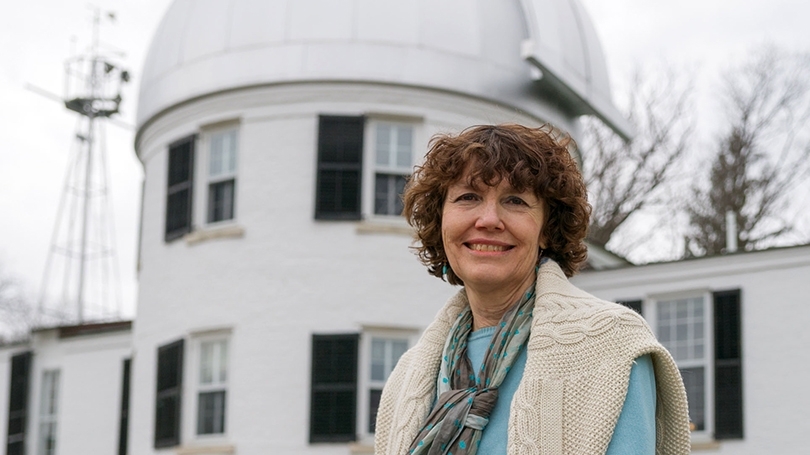
- About
- Departments & Programs
- Faculty Resources
- Governance
- Diversity
- News
Back to Top Nav
Back to Top Nav
Back to Top Nav
Back to Top Nav
The world's largest aerospace professional society selected Hudson for her lasting contributions to the field.
The American Institute of Aeronautics and Astronautics (AIAA), the world's largest aerospace professional society, selected Dartmouth professor Mary Hudson to serve as a member of the Class of 2023 AIAA Associate Fellows.
"Mary now stands with some of the greats in our profession's history and will no doubt do much more throughout her career to shape the future of aerospace," AIAA President Laura J. McGil said. "This distinguished group of professionals has made significant and lasting contributions to the aerospace profession. They exemplify expertise, passion, and dedication to advancing their specific disciplines, and they are truly shaping the future of aerospace."
The AIAA describes associate fellows as "persons who have accomplished or been in charge of important engineering or scientific work, or who have otherwise made outstanding contributions to the arts, sciences, or technology of aeronautics or astronautics."
An expert in the understanding of Earth's radiation belts and space plasma environment, Hudson serves as the Eleanor and Kelvin Smith Distinguished Professor of Physics. She studies the Earth's magnetosphere, the magnetic field that surrounds the planet. With funding from NASA, the National Science Foundation, and the Air Force Office of Scientific Research, she leads research on patterns of space weather—the conditions surrounding the Earth that may be influenced by activities such as solar eruptions. Her work related to space radiation has important implications for designing orbits for communication, navigation satellites, and entire spacecraft.
Among her many accomplishments, Hudson was awarded the 2017 John Adam Fleming Medal from the American Geophysical Union, the world's largest organization of Earth and space scientists.
Hudson has mentored three generations of PhD students and postdocs who have had a major impact on space weather research, going on to lead NASA and Air Force satellite instrument development and serving as research scientists at national laboratories.
AIAA's citation for Hudson reads: "For a lifetime of leading studies and understanding of the radiation environment of Earth's magnetosphere and the implications for successful operations of space systems."